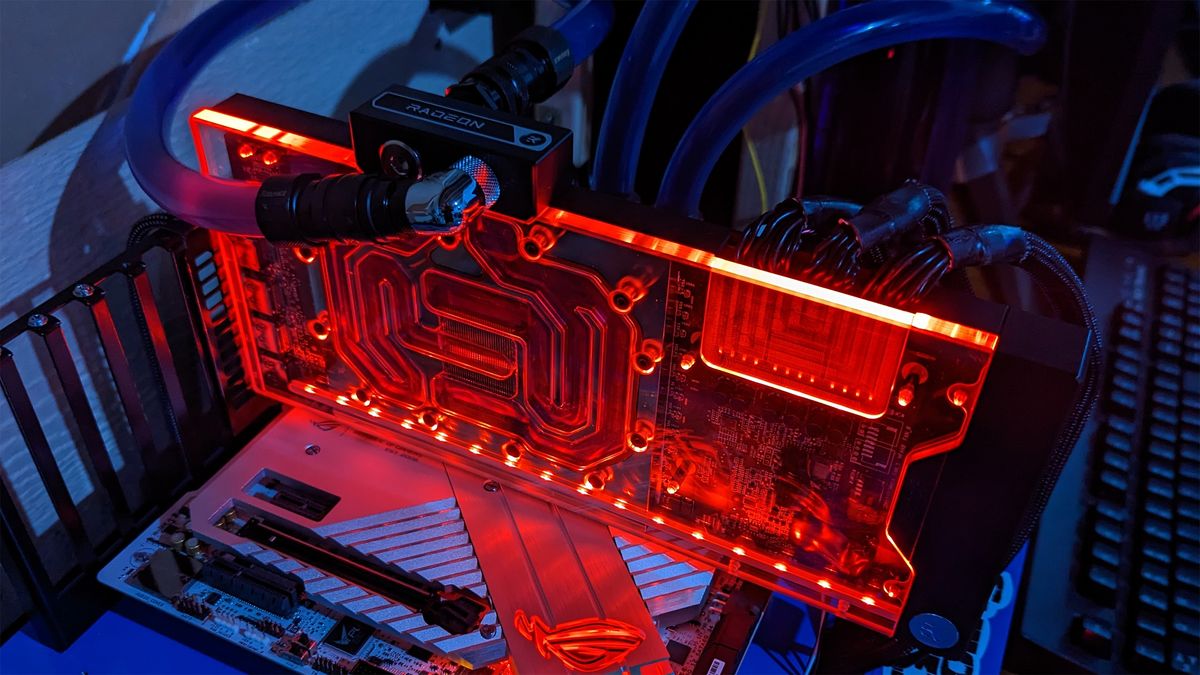My thoughts
- the 7900xt(x) launch disaster with the vapour chamber and cards catching fire, more notworthy this given the comments amd amd made about the 4090 fire hazard.
I don't remember, but sorry if it was the case, but I thought the vapour chamber issue just caused throttling. I don't think they caught fire did they? And it only impacted the reference model. Whereas the 4090 and cable issue were melting across the board. I think we can probably say the 4090 issue in comparison, from a safety pov, is/was worse.
- each new fsr version being hailed as the dlss killer only to take 1 step forward then 2 steps back and intel being able to get their version on par with dlss in comparison despite being new to the dGPU market
It's taken a while yes, but FSR 3.1 is probably where AMD want to be (finally). And lets not forget that this works on all makes of cards, so it also benefits Nvidia users with older cards. Personally I'd be saying thanks AMD!
- anti lag getting people banned, major oversight by amd this
Tricky one. But can we fully lay this on AMD? I bet AMD and likewise Nvidia can't test every single driver change with every game and involve every dev team. I personally think some blame lies with VAC system. I mean, did Nvidia not know about Windows 11 22H2 and do any internal testing in advance before release?
https://www.tomshardware.com/news/windows_11_22H2_nvidia_GPU_woes - I'd think this was a bigger oversight, impacting more people and more games than just CS2.
- pricing their gpus at launch in same bracket as nvidia counterparts despite not offering the same complete overall package as their competition
Nvidia stuff is overpriced, and usually Nvidia launch lesser cards first before the "proper" cards come out later - so no way AMD should be trying to emulate any of this. However, I don't know if general costs have gone up so hence price rises. Could all be fixed for all we know lol.
- the claims of how efficient rdna 3 was going to be and better than ada yet come launch, power guzzling like mad and issues with idle power consumption with dual monitors, amd quickly removed some of their slides from the website as well to hide these false claims (also, this wasn't pr marketing but comments direct from Lisa too)
Again I think the dual monitor issue was quite specific to high resolutions and high refresh rates. I'm not 100%, but, I think it is now under control (or at least improved). RDNA 3 performance per watt vs previous AMD cards (not Nvidia here) is actually an improvement. Toms Hardware did a comparison, "...the RX 7700 XT ultimately ends up delivering about a 20% improvement in performance per watt over the 6700 XT, and a 30% increase compared to the RX 6750 XT." Neat!
- knee jerk reaction to DLSS frame gen and making it out like it was in the works for months/years only to release in 2 awful titles and with a lot of missing features
Not sure what you mean on this one. lol.
- lack of RT focus with rdna 2, could be excused at launch but as shown, the cards are aging pretty poorly now with all the RT games coming out and even with the writing on the wall, they didn't properly address this with rdna 3 so now we have rdna 3 matching 4 year nvidia gpus in RT games
To me, that is probably the only downside at the moment - if RT is important to you. However, I just ran the Black Myth Wukong benchmark, which mrk informed me is using RT (Lumen), and my RDNA 2 card still managed respectable FPS at 1440p.









